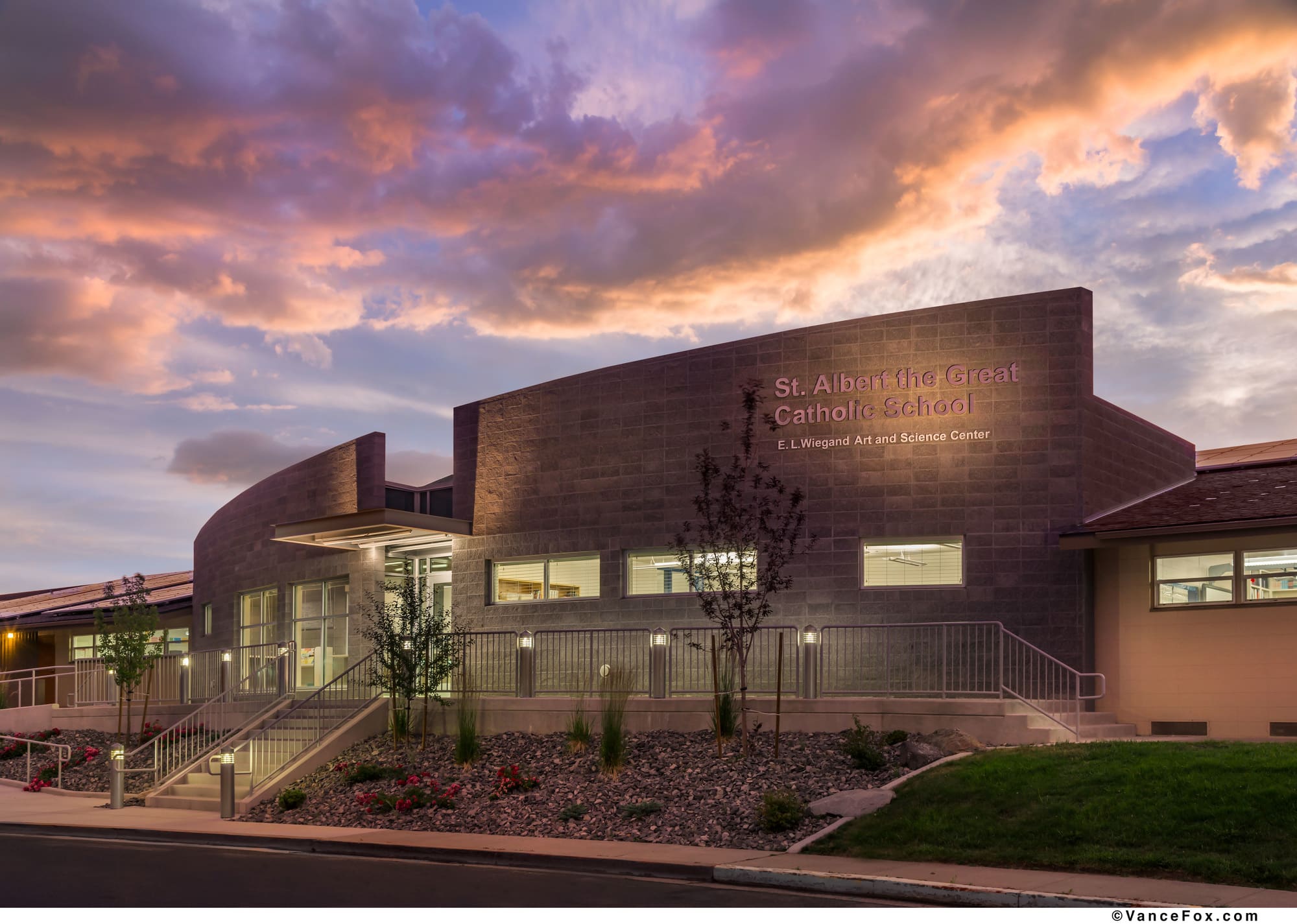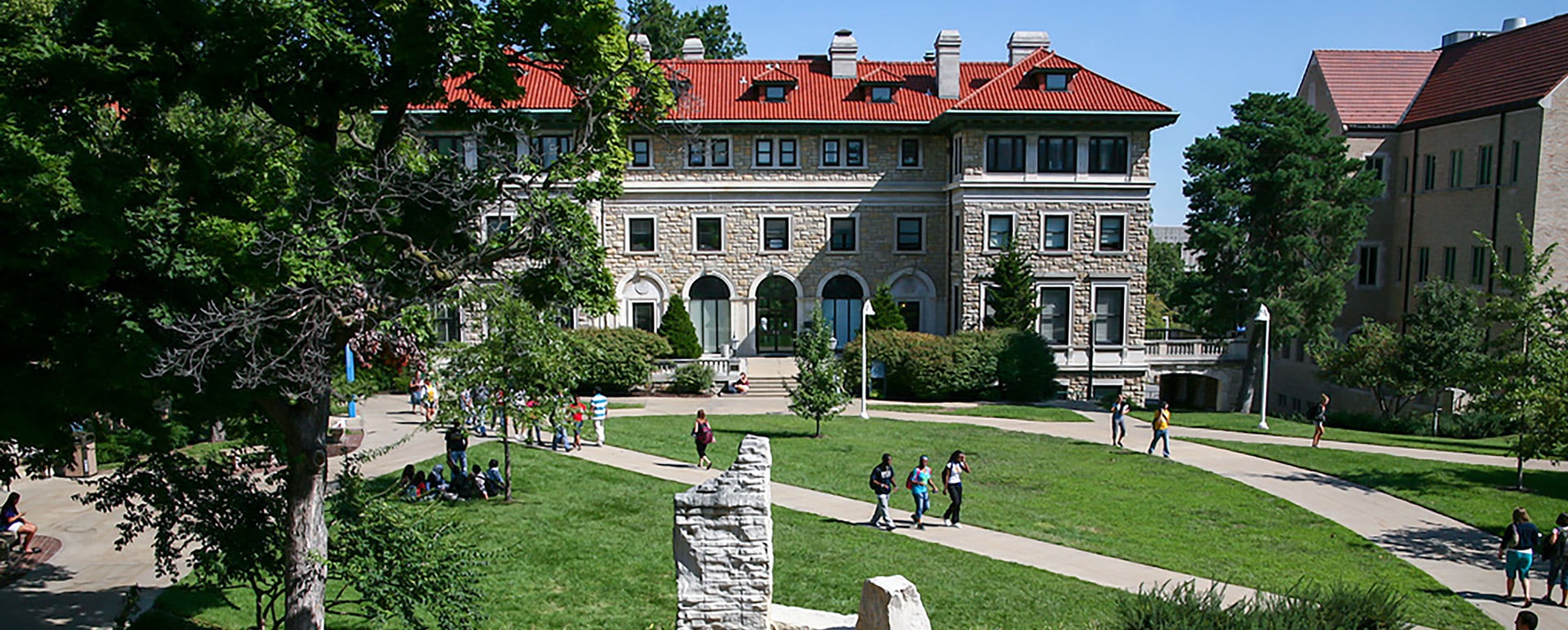Share Via
Download PDFTechnology is about more than just hardware and software. It’s about delivering a long-term vision to support an evolving organization. At Concordia University, St. Paul, our long-term vision shifted as enrollment swelled. We had to develop a strong, secure campus backbone that could grow with our institution and keep pace with a modern digital landscape.
Concordia University, St. Paul, is one of the top private universities in the Midwest. Founded in 1893, we take a student-centered approach and offer more than 100 degree programs. We’ve also expanded our course offering to digital learners with flexible, career-focused online degrees.
“We’re a school, not a tech company. We wanted to provide the reliable network that students need without having to develop the in-house expertise to maintain it.”
As the Director of Computer Services, although my IT team focuses on our students, we’re a school, not a tech company. We wanted to provide the reliable network students need without having to develop the in-house expertise to maintain it.
A small IT team faced growing demands
Our needs became more pronounced as enrollment swelled. Ten years ago, we had around 3,000 students. Our enrollment doubled after we developed our remote education program and acquired two nursing schools. My 10-person team is responsible for everything from telecom to networking servers, frontline help desk, tech shop repair, cybersecurity, and our online student information system. For residential students, our infrastructure enables academic and leisure activities around the clock.
As demands soared, our management difficulties became clear. We experienced frequent network outages with our legacy solution, and it took time for my team to identify and fix any issues. Sometimes, an issue resolved itself, which didn’t give us much confidence in the stability of our network. We consistently received tickets about difficulties connecting to the network, Zoom telephony issues, and poor cell coverage in certain areas on campus. Managing guest wireless access and rotating passwords was another task on our ever-growing to-do list.
At the same time, we had to decide what to do about our wireless infrastructure. Should we continue to refresh existing technology, knowing it’s not sustainable, or should we kick that problem down the road? We knew the traditional way of networking would be old hat in another few years, and our provost agreed. We began to wonder if there was a provider who could deliver network and Internet access as a commodity, where we only pay for what we utilize and offload management. Did it exist?
Bridging the gap between education and cutting-edge tech
We searched for years without finding a partner who fit the bill. So when a Nile representative reached out to me to discuss their solution suite, it felt like an “Aha” moment. They fit into our philosophy in that they are a tech company that would allow us to focus on education, and their approach to networking as a service bridges the gap between education and cutting-edge technology.
The Nile Access Service promised scalable, on-demand Internet and network access while relieving the strain on my team. It offered comprehensive network coverage for on-campus students, a strong, secure connection for CSP Global online students, and dedicated and secure guest wireless. The Nile solution would standardize and streamline access for everyone.
We also adopted the Nile DHCP Service add-on, which removed some of our manual server management burden while decreasing the risk of network disruptions due to server failures.
Fewer complaints and greater visibility
In the eight months since implementing Nile’s campus solution, Concordia has noticed:
- A dramatic reduction in network-related help desk tickets
- The end of once-common Zoom telephony issues
- Accurate device counts (previously estimated at 2,000, now accurately measured at 5,000 on peak days)
Improved network visibility provides additional benefits beyond understanding the rhythms of campus life. One residence hall continuously complained to our help desk about perceived poor cell connection to wifi. During an early survey, Nile identified that we suffered from an over-saturation of access points. By trying to fix the problem with our old network, we had made it worse by adding more wireless access points. Since adopting Nile, we haven’t received a single complaint about that residence hall.
Nile’s monitoring tools proactively detect issues and quickly resolve them. The university used to experience four to six outages per year, each lasting as long as it took us to identify the problem. We’ve seen a 67% decrease in outages in our eight months with Nile, and the outages are always resolved quickly. My team continues to be busy, but the network challenges have all but disappeared.
Bolstering our cybersecurity defenses
We see similar gains in Nile’s cybersecurity management. Nile’s approach to network segmentation follows the zero trust principle and addresses key concerns from our annual risk reviews. For example, last year’s review highlighted the potential for cross-horizontal connections on our old network. Guests accessing the same network as regular users posed further risk, plus the additional task of password management.
Nile configured our new network to eliminate the risk of cross-horizontal connections. Devices are now individualized and segmented in their connection to the firewall and Internet, meaning users can’t take advantage of a flat network. Guests access a separate guest services network, cutting off another line of attack and further reducing our management burden. The guest experience has greatly improved. I recently met with our conference and events team, who noted the ease of logging into the guest wireless portal.
Higher education is a prime target for cyberattacks, and Nile’s built-in Zero Trust framework protects students and staff from security breaches. These proactive security measures have contributed to our rising risk review scores since adopting a purpose-built campus solution.
A shared vision for a future-proof network
Working with Nile broke our longstanding practice of transactional vendor relationships. Nile brought our networking vision to life, and we quickly developed a partnership that delivers more than technology. Nile allows the entire Concordia administration to better understand our campuses and improve operations.
The price of the Nile campus NaaS offering is comparable to a traditional hardware/software purchase, but there’s more to ROI than price. Apart from the service, Nile’s unique value proposition includes proactive support, continuous improvement through shared learnings, and the ability to scale without large capital expenditures.
“The future of networking isn’t owning the hardware. It’s about owning the outcome.”
Our network is now future-proof. By moving away from traditional equipment purchases to a pay-as-you-go, scalable model, our school enjoys flexibility as we continue to grow—and because we stay up to date with the latest standards, we avoid the risk of being left behind, which is much more likely with a traditional vendor’s lifecycle model.
The future of networking isn’t owning the hardware. It’s about owning the outcome. Nile’s campus NaaS offering gives Concordia the reliability, scalability, and security to support our educational mission. As we support more learners on campus and online, our small team can confidently give everyone the experience they need to succeed.




